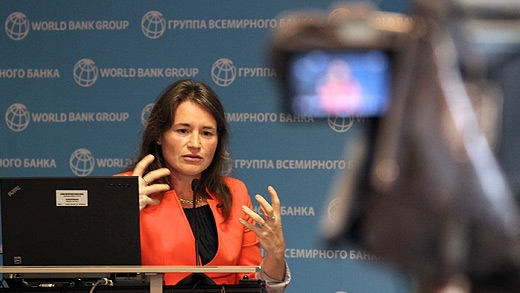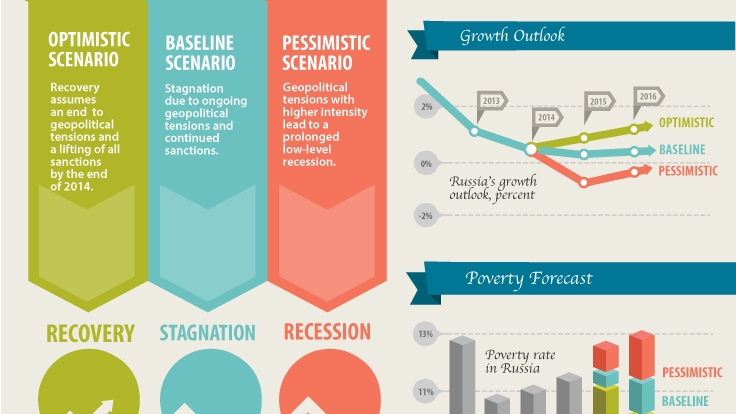UPDATE: World Bank Revises Its Growth Projections for Russia for 2015 and 2016 |
|---|
Moscow, September 24, 2014 - The Russian economy is near stagnation, with continued lowered domestic demand leading to growth of 0.8 percent in the first half of 2014, similar to 0.9 percent in 2013, the World Bank said today in its latest Russia Economic Report launched in Moscow. Economic activity was already hamstrung by lingering structural problems and a wait-and-see attitude on the part of both businesses and consumers in 2013. An additional negative impact on the economy―besides slow structural reforms―came from increased geopolitical tensions and an uncertain policy environment. It is policy uncertainty about the economic course the country will take that is casting the longest shadow on Russia’s medium-term prospects.
“In the first half of 2014, macroeconomic stability continued and Russia remains in possession of large buffers to uphold stability in the near future,” said Birgit Hansl, World Bank Lead Economist for the Russian Federation and the main author of the Report. “However, there is little movement on the structural reform agenda, which could boost Russia’s growth potential in the medium-term. Both of these observations together are captured in the World Bank’s most likely scenario―the baseline scenario―with positive but low growth near stagnation in 2015 and 2016.”


